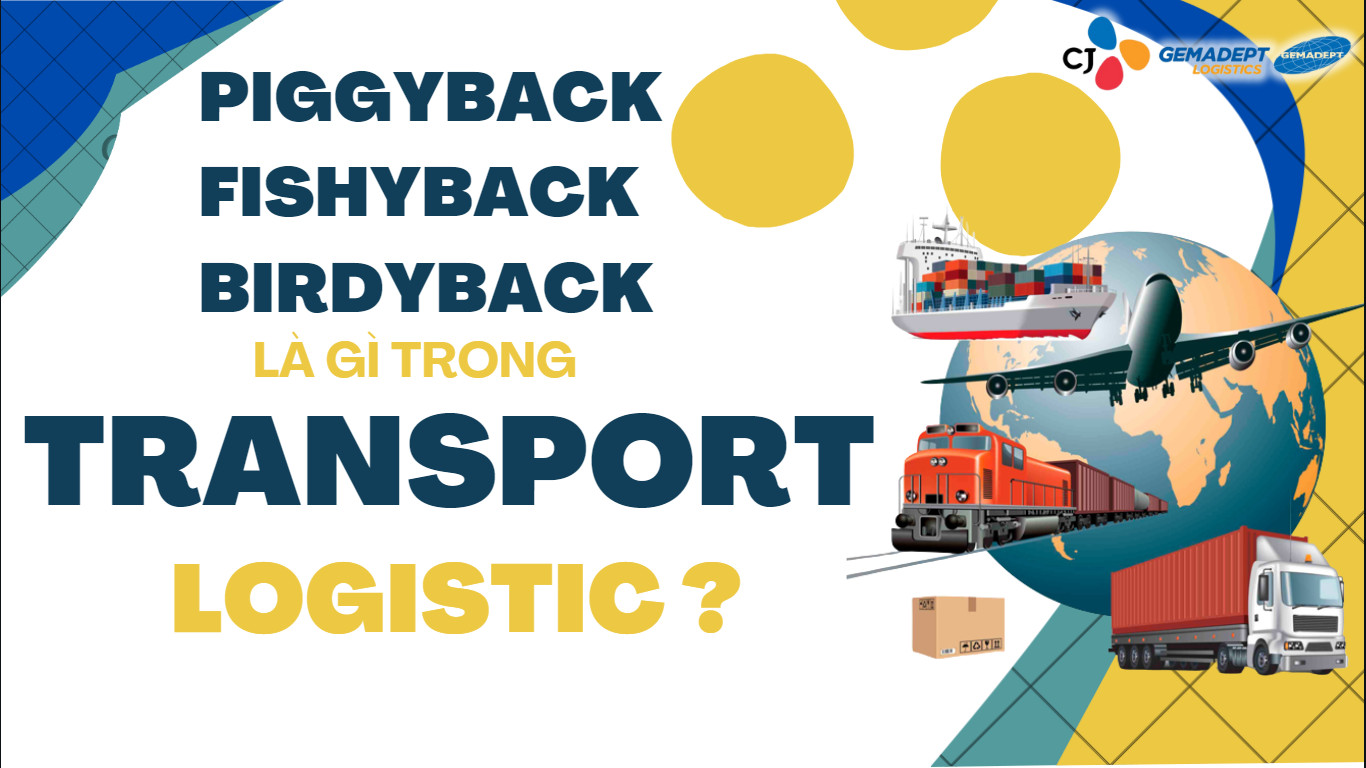"Piggyback," "Fishyback," and "Birdyback" are terms used in the field of intermodal transportation to refer to forms of cargo transportation that involve using trucks in combination with other modes of transportation. Here is a detailed explanation of each term:

1. Piggyback: Piggyback is a form of cargo transportation where goods are loaded onto a truck, which is then transferred onto another mode of transportation, such as a train. Specifically, the truck is carried on a specialized transport unit called a "piggyback trailer" or a "roll-on/roll-off trailer" to continue the journey by rail or waterways. Piggyback allows for convenient transfer of goods between road and rail or water transport, and vice versa.
2. Fishyback: Fishyback is a variation of piggyback, where a truck carries goods onto another mode of transportation, such as a train, but unlike piggyback, the second mode of transportation is not a train but often a cargo ship. Fishyback is commonly used when there is a need to transport cargo between road and sea transport or vice versa.
3. Birdyback: Birdyback is also a variation of piggyback, in which a truck carries goods onto another mode of transportation, such as an aircraft. Birdyback is often used for international freight or when expedited delivery is required. However, this form is less common than piggyback and fishyback.
All three methods, piggyback, fishyback, and birdyback, leverage the advantages of different modes of transportation to optimize the process of cargo transportation, reduce costs, and minimize transit times.